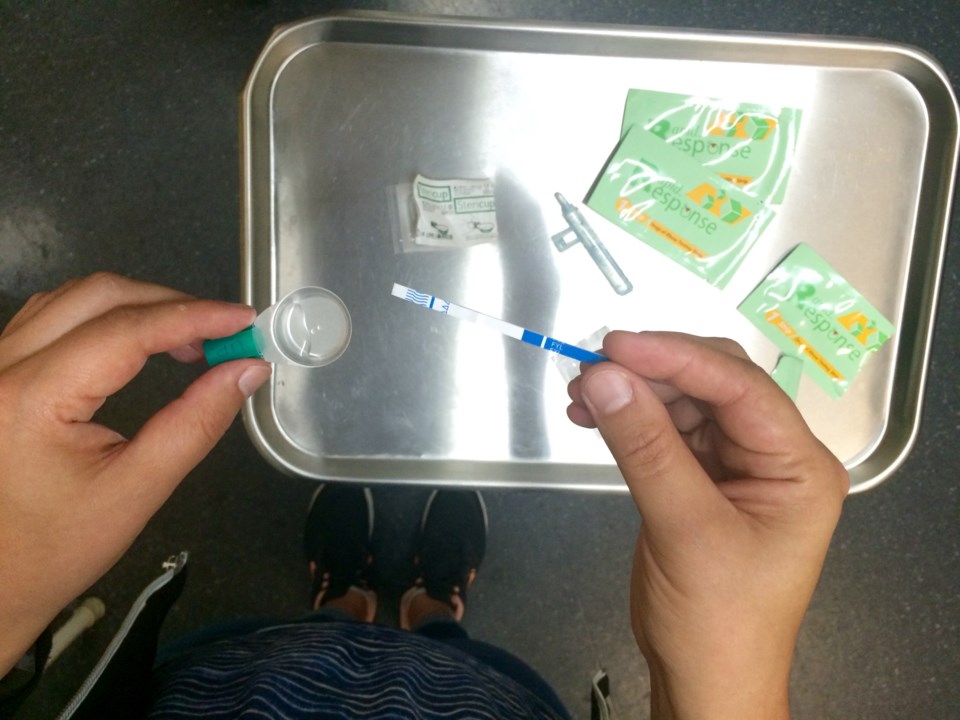Three people died in Richmond in April because of poisoned drugs and the health authority is hoping more people will test their drugs to lower this number.
The BC Coroners Service released its April statistics this week of people who died from illicit drugs that had been cut with other chemicals – many with fentanyl – and Richmond is on track to lose as many people this year as last year.
Last year, 32 people – the highest recorded - died in Richmond because of toxic drugs. This year, so far, between January and April, 11 people have died in Richmond.
Fentanyl testing strips are available at the Ann Vogel Centre – at Alderbridge Way and Lansdowne Road – and a recent study has shown at-home drug testing is virtually the same as drug-testing at regulated sites.
Among 1,768 opioid drug samples tested between April to July 2019, positivity rates for the take-home tests were around 90 per cent while those obtained by trained staff were 89.1 per cent.
Dr. Mark Lysyshyn, deputy chief medical officer with VCH, said people who use testing strips tend to use more carefully because they’re aware of the fact their drugs are tainted with other chemicals.
Since the pilot ran in 2019, VCH has made limited quantities of the take-home strips available at designated locations, such as supervised safe injection sites. Staff are available to ensure people who request the strips are familiar with how to use them.
In the study, the vast majority (95 per cent) of participants indicated they would use the take-home test strips again. Additionally, nearly one in three reported safer substance use behaviour as a consequence of a fentanyl positive test result.
"Drug checking, including the use of drug testing strips, is part of a broader harm reduction strategy employed by VCH and other B.C. health authorities, which allows an individual to identify the substances contained in illicit drug samples," explained a VCH news release.
In 2023, British Columbia will remove criminal penalties for people who possess a small amount of certain illegal drugs for personal use — but experts say the exemption is largely political and will not solve the central issue: overdose deaths.
B.C. declared a public health emergency about seven years ago over drug toxicity deaths, but, especially during the pandemic, the number of people dying has risen.
Lysyshyn said, while complicated because of legal issues, the “clear solution” would be to have a “safe supply” of drugs, that is, to allow people who use drugs to get drugs that aren’t tainted with other chemicals.
He pointed out that’s what done with regulated products, like the recent case where oysters were tainted with norovirus.
“You quickly get it off the shelf and you introduce a product that is not contaminated,” Lysyshyn said.
“We should be able to do that with the drug supply, too, but there hasn’t been the political willingness for that,” he added.
While the recent move to decriminalize small amounts of drugs will reduce some of the harm, Lysyshyn said, “ultimately, if they’re still using the toxic drugs, they’re going to overdose.”
- with files from Elena Shepert


